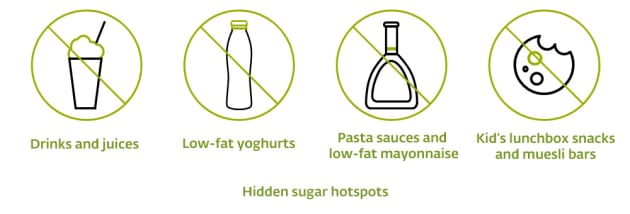The growing awareness of health and the desire for wellness in modern lifestyles is leading to increasing consumer demand for reduced sugar or sugar-free food and beverages. Flavour and fragrance company Givaudan provides the following insights.
Consumption of sugar-sweetened beverages is associated with increased intake of calories leading to weight gain and obesity. Recently, British celebrity Chef Jamie Oliver an outspoken campaigner against childhood obesity, instrumental in introducing a sugar tax in the UK, has strongly recommended that a similar tax be imposed in Australia as well.
Givaudan also believes that health comes first and that TasteSolutions Sweet will help food and beverage manufacturers to successfully reduce sugar in their products. Using the latest cutting-edge technology, TasteSolutions Sweet offers natural, clean label solutions to rebuild a sugar like perception and restore consumer satisfaction.
Regulating sugar in Australia
According to a recent survey report, Australian Institute of Health and Welfare, one in four Australian children and about 30% of the Australian adult population is overweight or obese. This can be attributed to junk food which contains 81% free sugar, of which almost 50% comes from sugar-sweetened beverages.
More than 50% of Australians consume more than the maximum recommended daily intake of sugar. The consumption of sugar-sweetened beverages is associated with increased intake of calories leading to weight gain and subsequent obesity. This has prompted the Heart Foundation to call on the Australian Government to examine the benefits of levying a sugar tax at the earliest.
Tackle the problem at a grass roots level
The global deterioration of health, driven by rising levels of obesity, has led to public demonisation of specific ingredients – including sugar – creating greater urgency for action.
Obesity is a cause of concern because it is a precursor to other health conditions like heart disease, type 2 diabetes and tooth decay to name a few. The World Health Organisation (WHO) recommends that the daily free sugar intake should not be more than 10% of the total energy intake, which roughly equates to 12 teaspoons of sugar per day for adults.
This is difficult to control because having a 600 ml bottle of a sugar-sweetened beverage leads to consumption of 18 teaspoons of sugar. Although dairy has a strong health perception, products like yoghurt and flavoured milk are often higher in sugar than expected.
As a result, food manufacturers are increasingly looking for sugar replacers and natural sweeteners like Stevia, or artificial sweeteners like Sucralose, Aspartame and Acesulfame Potassium are commonly used. However, these alter the mouthfeel and profile of the product, often leaving bitterness, dryness and a host of undesirable notes that linger, leading to a loss of consumer preference.
A sweet compromise
Givaudan’s TasteSolutions Sweet® helps achieve the aim of reducing sugar naturally in various products, providing for product development needs, including adhering to market expectations of clean label. Flavours created with TasteSolutions Sweet® are able to mask unwanted characteristics and create desired body and sweet profiles. This allows consumers to continue to enjoy foods and beverages they have always known and loved.
TasteSolutions Sweet® does not simply address the sweetness intensity but manages the overall sweetness profile of a product, which includes its onset, how it lingers, its flavour and body and how it affects the feel of a product in the mouth. These solutions have been developed after extensive research with the key objective of keeping in mind the consumer needs while delivering great taste.
This article is sponsored content supplied by Givaudan. Connect with Givaudan and discover how TasteSolutions Sweet® can unlock the full potential of less sugar with great taste on (02) 8818-2700 or oceania_flavours@givaudan.com.






